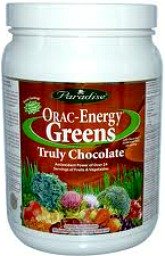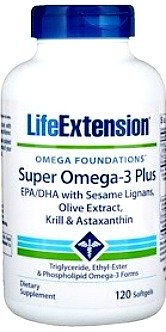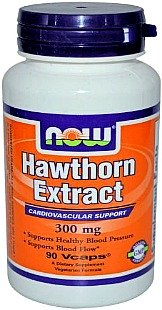Good fats vs Bad fats: The truth
Good fats vs bad fats problem became more evident with the development of food industry and refining processes. Somewhere along the way, people also began to look at dietary fats as something evil.
However, this was mostly fueled by TV commercials advertising low fat foods. Because of it, some people went too far, by drastically reducing the amount of fats in their diet.
Don't get me wrong. Reducing the intake of dietary fats, especially the bad ones, closer to daily recommended amounts is good but going too far can be as bad as eating too much fatty foods.
GOOD FATS VS BAD FATS: HEALTH BENEFITS OF FATS
Healthy diet consists of macro (carbohydrates, proteins, fats) and micro (vitamins, minerals) nutrients. Also, we can't forget the water.
You can look at it as a "formula" of a human health. If you remove something out from it, you can endanger your health. Even worse, the heart is one of the first organs to experience the consequences of your actions.
In this "formula", dietary fat has a huge role, since it is vital for many biological procesess that are happening inside the body:
TYPES OF FAT: GOOD FATS VS BAD FATS
Fats are divided into good and bad. However, there are some types of fats, such as saturated fat which is labeled as bad but the truth is that it is actually good, when consumed in moderate amounts.
All natural dietary sources of fats are part of healthy diet. Difference is only in quantity. Good types of fats should be consumed in greater amounts, while saturated fats should be consumed in smaller quantities, in order to get the most benefits from both of them.
GOOD FATS VS BAD FATS: THE GOOD ONES
Good fats are unsaturated fats which includes monounsaturated fats and polyunsaturated fats. These two have beneficial effect on cholesterol. They can lower LDL, while raising HDL cholesterol.
Food sources of good dietary fats are peanuts, walnuts, almonds, olive oil, canola oil, fish, sunflower oil and even some fruits and vegetables such as avocado and soy.
Red meat and dairy products can contain good fats but this mainly applies for grass fed cattle which is quite rare these days.
GOOD FATS VS BAD FATS: THE BAD ONES
When people talk about bad fats, they mainly think of saturated fat although it ain't that bad, if consumed in moderation.
Sources of saturated fats includes meat and other animal products such as cheese, butter, cream, milk and eggs. Even some vegetable products such as coconut oil, palm kernel oil and chocolate contain substantial amounts of saturated fat.
On the other hand a truly bad type of dietary fats are trans fats or hydrogenated fat. Trans fats are unhealthy, artificial, man-made fat which can be very harmful for the heart and negatively affect blood lipid profiles.
Trans fats are great for business since they are very cheap. They also increase shelf life of processed foods, in the supermarkets, which again equals more money for the sellers. Trans fats decrease HDL cholesterol, while raising LDL cholesterol.
As a result, diet rich in hydrogenated fat increases the risk of cancer, diabetes and heart disease, especially atherosclerosis.
Sources of trans fats are basically all processed foods such as cakes, cookies, chips, crackers, candies and fast foods.
GOOD FATS VS BAD FATS: HOW MUCH
Dietary fats should count for approximately 20 to 30 percent of your daily macro nutrient intake that your body requires for optimal function and energy levels.
This includes good fats and saturated fat. Remaining calories should come from carbohydrates, mainly complex ones and protein.
CONCLUSION
To get the most from your diet, when it comes to good fats vs bad fats, consume sufficient amounts of monounsaturated and polyunsaturated fats through seeds, nuts, fruits, vegetables, grains, fish and some healthy oils.
Control your intake of saturated fats, by staying away from dairy products and controlling your daily intake of meat and plant based sources of saturated fats.
Also, avoid as much as possible or limit the amount of trans fats in your diet, by cutting down on processed foods you eat.
- Heart Healthy Diet: Simple Tips and Guidelines
- Learn everything you need to know about heart healthy diet and find the right one for you. Implement few simple tips for immediate benefits.
- Heart Healthy Foods: How to Get the Most from Them
- Heart healthy foods can improve cardiovascular system function. Foods good for the heart are bursting with vitamins, minerals and rejuvenating phytochemicals.
- Herbs for the Heart and Cardiovascular System
- You have heard for hawthorn and garlic but there are few other herbs for the heart which can help in treating heart disease, naturally.
- The Best Heart Health Supplements
- Besides fish oil, there are several heart health supplements which can be useful. This includes Coenzyme Q10, Salicin, vitamin D3 and few others.
- Heart Healthy Spices
- Although there are many heart healthy spices out there, each of them can help prevent and treat heart disease in its own way, thanks to different types of flavonoids in these heart spices.
- Stress and Heart Disease: How are They Connected
- Stress and heart disease are closely related. In order to decrease the risk of heart problems, we have to learn how to handle the stress and treat its consequences, if we are unable to avoid it.
- Cardio Exercises for the Heart and Cardiovascular System
- Cardio exercises are vital part of natural heart disease treatment. However, which kind of heart exercise you should preform, varies from person to person.
- Good vs Bad Cholesterol: How to Improve Cholesterol Values
- Good vs bad cholesterol conflict is somewhat misunderstood. There is no good or bad cholesterol but only high or unbalanced cholesterol.
- Good Fats vs Bad Fats: Nutritional Facts and Guidelines
- What is the real truth when it comes to good fats vs bad fats? How much dietary fats should you consume daily and what are the best food sources of healthy fats?
- High Blood Pressure Remedies
- High blood pressure remedies range from tips and lifestyle modification to herbs and supplements. However, the method that works for someone else, may not work for you.
- Normal Heart Rate: How is Regulated and Influential Factors
- Normal heart rate varies from person to person. Although, age affects resting heart rate, there are many other factors that can raise or decrease heart rate.
- How to Lose Fat: Overlooked Tips for Weight Loss
- How to lose fat is surely one of the most intriguing questions for so many people. However, the answer is very simple. Eat healthy foods, perform fat burning exercises and take care of your hormones.
- Hormones and Heart Disease Connection
- Don't neglect hormones and heart disease connection. If you want to treat or prevent heart disease you have to balance your hormones.
- Heart Disease and Immune System Connection
- Heart disease and immune system connection is often overlooked, while trying to improve cardiovascular system function. However, there are several things you can do to change this.
- Dental Health Heart Disease Connection: Facts and Tips
- Dental health heart disease connection is one of three overlooked factors, along with hormones and immune system. However, with smart and effective approach we can change this.
- Causes of Heart Disease
- There are many causes of heart disease and factors that can increase or decrease your risk for developing heart related problems. Check how to turn the tide in your favour.
- Symptoms of Heart Disease
- There are few main symptoms of heart disease. Find out which are they, how to recognize them as well as my personal experience with some of them.
- Diagnosis of Heart Disease
- Accurate diagnosis of heart disease is the first step toward recovery. You can't start with treatment before you know what kind of disease you have, obviously.
- Treatment for Heart Disease: Medications and Surgeries
- Standard treatment for heart disease consists of surgeries, medications and devices. Which one is right for you, depends on your condition.
- Heart Disease Blog
- This is a blog about natural remedies, personal stories, helpful herbs and supplements, workout program as well as other tips and facts which may help people faced with heart disease.
- Contact Me
- Ask questions and leave comments about this site here.
- About the Author of Heart Health Guide
- About the author of Heart-health-guide.com website.
- Heart Health Guide Sitemap
- This is sitemap of Heart Health Guide.com. If you want to get better overview of informations on this website, you can get it here.
Copyright © - Heart Health Guide - All Rights Reserved.



